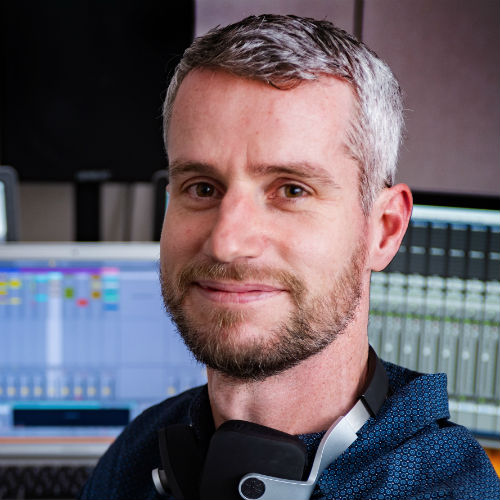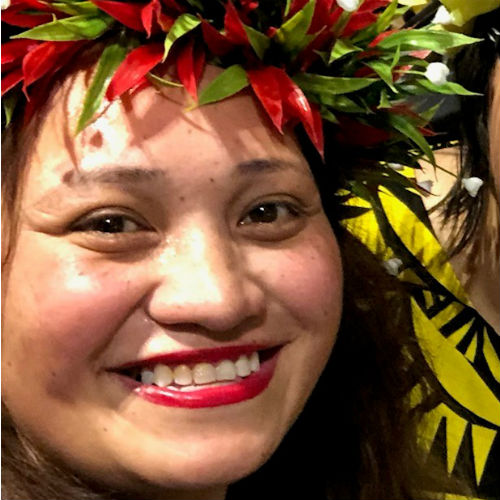
Master of Education – MEd
Build on your professional experience and broaden your knowledge and skills in the field of education with postgraduate study.
The people you work with and learn from are an important part of your studies. Learn who the teaching staff are within the majors and who to contact as potential supervisors if you are considering a dissertation, thesis, or research project.
Academic staff
- Chris BowdenChris Bowden—Suicide bereavement, grief and loss, trauma and trauma-informed care, youth and men’s mental health, coping and resiliency, transformational learning, post-traumatic growth
- Sue CherringtonSue Cherrington—Early childhood pedagogy, reflective practice, professionalism, professional development
- Cherie Chu-FuluifagaCherie Chu-Fuluifaga—Mentorship, leadership development, appreciative inquiry, Pacific learners, Pacific education, indigenous education, human development, higher education, adult learning and appreciative inquiry
- Carmen DalliCarmen Dalli—Early childhood policy, teacher professionalism, systemic professionalism, infant and toddler pedagogy
- Vanessa GreenVanessa Green—Child development, children's social development, peer relationships, bullying, social competence, social skills, friendship
- Linda HoggLinda Hogg—How schools use students’ strengths and skills to improve their educational experience, especially to work towards social justice aims
- Joanna KidmanJoanna Kidman—Indigenous sociology, decolonisation studies, Māori youth, higher education, settler-colonial studies, politics of education
- Judith LoveridgeJudith Loveridge—Informal learning in everyday contexts, doctoral students with children, home-based learning for children in care, ethics in research in educational contexts, parents and education
- Sandi McCutcheonSandi McCutcheon—Inservice and preservice teacher education, higher education Research, positioning theory
- Hiria McRaeHiria McRae—Maori education, place based education science and technology curriculum, education for sustainability
- Anita MortlockAnita Mortlock—Mat times in schools, children's peer relationships, technology education in early childhood settings
- Fuapepe RimoniFuapepe Rimoni—Tama Samoa (Samoan boys) in secondary school, identity in secondary schools, sense of belonging, school efficacy
- Jenny RitchieJenny Ritchie—Te Tiriti o Waitangi education, early childhood care and education, childhood studies, social justice, cultural, linguistic and ecological sustainability in education, climate change education
- Kabini SangaKabini Sanga—Leadership, educational policy, international education, development education, governance of higher education and indigenous research.
- Jeff SigafoosJeff Sigafoos—Communication intervention for children with autism and other developmental disabilities
- Kate ThorntonKate Thornton—Educational leadership and leadership development, mentoring and coaching, professional learning communities
- Hannah WaddingtonHannah Waddington—Early intervention for children with autism spectrum disorder
- Bronwyn WoodBronwyn Wood—Youth citizenship, citizenship education, social sciences education, social studies curriculum, education policy, curriculum theory
- Anne YatesAnne Yates—Assessment, e-learning, initial teacher education, digital technology in education
Stories

Martin Emo
Master of Education Student
I changed the music rehearsal room for the virtual classroom and learnt more in the first four weeks of my summer semester than in over 10 years of teaching.
Time to focus
Among jazz band practices, classroom teaching, and report writing, I’ve never had the time to sit back and think about what is actually the point of assessment. The teaching staff in the Master’s programme have helped guide me to focus on my subject area of music within wider educational topics such as digital assessment and evaluating educational change.
Distance learning
Working as a distance student, combined with face-to-face and video contact, has allowed me to continue to be active in my own community in Nelson, whilst connecting and building a supportive educational community in Wellington.
Gap filler
The Master’s programme, while a big step up from all of my previous study, is filling the gaps in my knowledge to prepare me for the next steps in my teaching and learning journey.
Endless opportunities
With support from a full-time New Zealand Post Primary Teachers’ Association study grant, I am making the most of all of the opportunities that studying a Master’s at Victoria University of Wellington bring—be it reviewing research on effective digital assessment to the creation and delivery of an e-learning music technology professional development programme.

Sinapi Taeao
Master of Education
The support networks at Victoria University of Wellington have been amazing, especially during those times when you feel a bit overwhelmed by study.
A role model
Sinapi chose to study at Victoria University of Wellington as it was close to her home and she wanted to follow in her mother’s footsteps.
“She completed her Master of Education in 2015 and highly recommended the programme at the University because of its wonderful staff and the variety of courses offered.”
Supporting success
“I have so much respect for the lecturers and staff from the Wellington Faculty of Education—they are high calibre and have been very supportive. I am also grateful for the support and encouragement of the various postgraduate learning communities at the University—particularly the Leadership Pacific cluster, Te Pūtahi Atawhai Pasifika postgraduate students group, and MAI Poneke PhD students group. The TeachNZ scholarship has been helpful in allowing me to study full time and complete my Master’s within a year.”
Where to from here
Sinapi’s Master’s focused on Pasifika and mathematics education. After graduating, she took up a leadership position at a low-decile, whanau-orientated school with a high proportion of Pasifika students. There, she applied all the knowledge and skills she learned from her studies at Victoria University of Wellington.
Previous
RequirementsNext
How to apply

